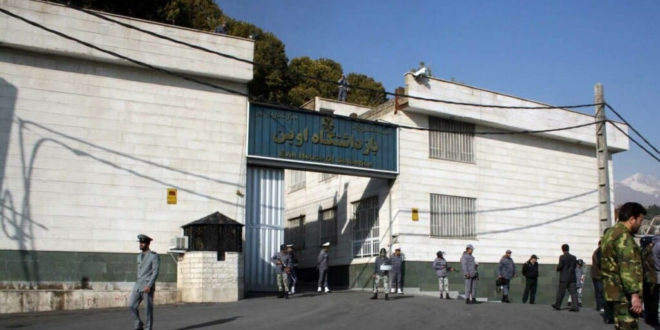Israel has turned key components of Iran’s tyrannical regime into rubble. In solidarity with the Iranian people who have long endured the regime’s brutality, the first wave of Israeli strikes from June 13-18 targeted those who have most repressed them: senior military commanders of the Islamic Revolutionary Guard Corps (IRGC), the Law Enforcement Command in Tehran, and the regime’s primary propaganda outlet.
A second wave of strikes on June 23 was even more extensive, striking sites dedicated exclusively to internal repression, including: Evin Prison — infamous for torture and executions of political prisoners, IRGC and Basij bases tasked with crushing civic activism, and the intelligence wing of Iran’s national police responsible for monitoring citizens. By weakening these institutions and eliminating their leadership, Israel has created space for a suffocated civil society to breathe.
- Evin Prison: The Regime’s House of Torture
Notorious for holding thousands of political prisoners, journalists, and activists, Evin Prison best symbolizes the regime’s ruthless repression. Former inmates recount witnessing or enduring physical and psychological torture, rape, and executions within the facility. Israel’s targeted strike damaged the facility’s gate and two courtrooms within the compound, avoiding harm to detainees while sending a message of solidarity with the victims.
Previously, the U.S. Treasury sanctioned Evin in 2018 for subjecting prisoners “to brutal tactics inflicted by prison authorities, including sexual assaults, physical assaults, and electric shock.” Treasury also noted that the IRGC and Iran’s Ministry of Intelligence “maintain permanent wards in Evin Prison.” The European Union imposed sanctions on the prison and several staff members in 2021, citing “severe human rights abuses, including torture.” Canada followed in 2022 with similar measures.
- Basij: The Regime’s Paramilitary in Civilian Clothing
Established shortly after the 1979 Islamic Revolution as a branch of the IRGC, the Basij Resistance Force is an ideological paramilitary force that has played a leading role in suppressing every major civic movement over the past 45 years. The Basij operates nationwide through a decentralized network embedded in schools, universities, workplaces, and mosques, with its recruits trained in coercive methods of crowd control. Many of its members operate in civilian clothes — known as “plainclothes” agents — to blend in and more effectively quash unrest.
The U.S. Treasury sanctioned the Basij in 2011 for its role in “violent crackdowns and serious human rights abuses.” Canada sanctioned the group in 2010, followed by Australia in 2022, the European Union in 2022, and the United Kingdom in 2023 — all citing its involvement in repressing protestors.
- Sarallah Command: Engine of Urban Suppression
The Sarallah IRGC Command is tasked with protecting the Islamic Republic from domestic threats, including suppressing the 2009, 2019, and 2022 protests, with a focus on the Tehran and Alborz provinces. Functioning as the regime’s top crisis command center, this base coordinates between the IRGC, Basij intelligence forces, and police. Sarallah oversees several specialized battalions and intelligence units — including the Ashura, al‑Zahra, Imam Ali, and Beit‑al‑Muqaddas units — trained for rapid deployment and urban crowd operations. It also conducts cyber operations aimed at identifying and arresting activists and journalists as part of the regime’s “soft war” against dissident journalists and activists.
For his role in quelling the 2022 Women, Life, Freedom wave, Sarallah Deputy Commander Hossein Nejat was sanctioned by the United States, the European Union, and New Zealand in 2022, followed by the United Kingdom, Australia, and Canada in 2023.
- Mohammad Rasoulallah Corps: Ground Force of the Crackdowns
Operating under Sarallah during times of unrest, the Mohammad Rasoulallah Corps is responsible for coordinating the operations of the IRGC ground forces and the Basij within greater Tehran. Infamous for leading the crackdown on the 2009 protests, forces under this command also killed unarmed demonstrators during the 2019 and 2022 uprisings.
Hasan Hassanzadeh, commander of the corps, was sanctioned in 2022 by the United States, the United Kingdom, and the European Union — and in 2023 by Canada and Australia — for his role in suppressing the 2022 uprising.
- The Intelligence Directorate of the Law Enforcement Command: Surveillance of Civil Society
Israeli Defense Minister Israel Katz described the regime’s Law Enforcement Command as “the Iranian dictator’s central repressive arm” — a stance reflected in Washington’s 2011 sanctions on the force for its human rights abuses. But it is the intelligence wing of the state police that enables much of its repression, and Israel targeted that division in the June 23 strike.
As the first barrier against civic activism, the Intelligence Directorate surveils and arrests demonstrators and dissidents, including those involved in the 2022 Women, Life, Freedom movement. A year later, it arrested 13 people attending a memorial at the gravesite of a 19-year-old protester shot dead by security forces in November 2022.
 Eurasia Press & News
Eurasia Press & News


